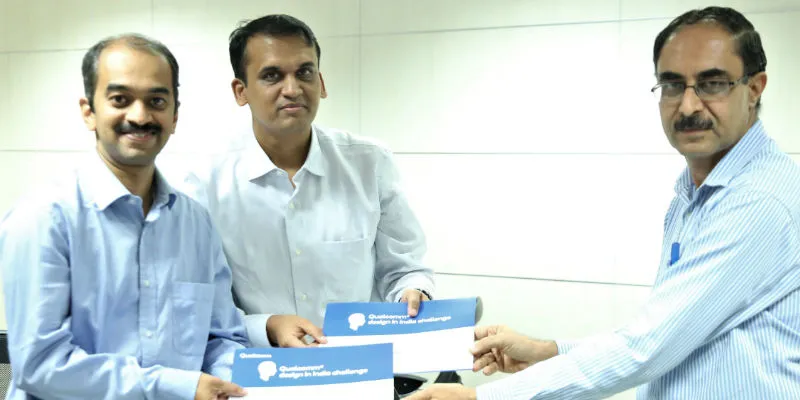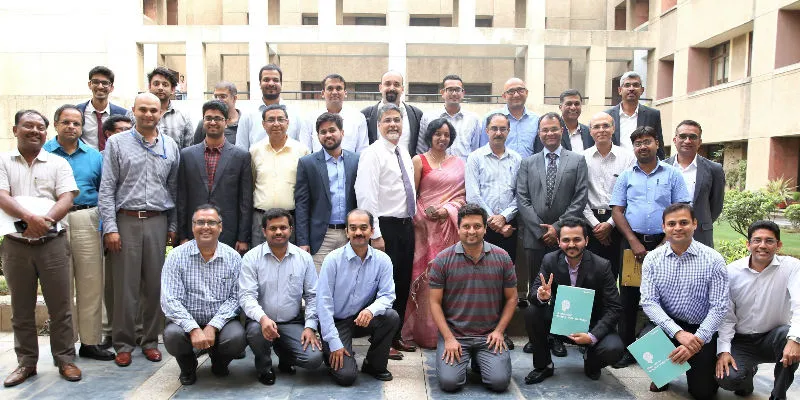
Qualcomm
View Brand PublisherBengaluru-based deeptech startups Sensara & Lightmetrics win Cycle 2 of Qualcomm Design in India Challenge 2017
Bengaluru-based deeptech startups Sensara Technologies and Lightmetrics Technologies have won Cycle 2 of the Qualcomm Design in India Challenge 2017 to take home prize money of $75,000 each.

While Sensara is redefining how people interact with television and improving the experience through its AI and ML-powered products, Lightmetrics aims to make driving safer and more efficient by using Computer Vision (CV) and ML.
The second cycle of the Qualcomm Design in India Challenge, launched in August 2017, saw widespread participation from Indian product design and development startups. Speaking about the winners, Jim Cathey, Senior Vice President and President, Asia Pacific & India, Qualcomm International, said, “In this cycle of the Qualcomm Design in India Challenge 2017, we witnessed creative ideas for innovative products and services across sectors in Smart Cities, Med-Tech, Machine Learning, Fintech and Automotive. The two winners have created cutting-edge technologies and solutions addressing the needs of the present world.”
The two winning startups were among six which were shortlisted and incubated at the Qualcomm Innovation Lab in Bengaluru, and received mentorship and technical support from Qualcomm India, in addition to seed money of $10,000 each.

Launched in 2016, so far the accelerated design programme has incubated 24 startups with an overall investment of over USD 8.5 million. The Qualcomm Design in India Challenge supports fast design cycles and time to market, and leverages Qualcomm technologies to help Indian companies design and create products in the IoT space for global markets. Tagbox Solutions Pvt. Ltd. and Steradian Semiconductors Pvt. Ltd won Cycle I of Qualcomm Design in India Challenge 2017.
15 startups selected for 2018
Qualcomm has also announced the top 15 finalists for Qualcomm Design in India Challenge 2018. Three winning startups will be selected from these 15 shortlisted entries in early 2019.
Talking about what to expect in the 2018 programme, Rajen Vagadia, Country Manager, Business Development, Qualcomm India, said, “We are thrilled with the overwhelming response we received for the 2018 chapter, which marks an increased focus on putting startups on an accelerated path towards growth and development. Our shortlisted finalists come from all over India, representing a diverse range of products and applications across different spheres. Augmenting this diversity, we have three of our shortlisted startups run by women entrepreneurs.”
The 2018 programme has some new elements:
Prize money for the winners: At the end of the incubation period, the winner of two runners-up will be awarded with $100,000, $75,000 and $50,000 respectively.
Patent filing incentive: Qualcomm will provide each startup an amount up to $ 5,000 for patent applications, filed with either the US Patent and Trademark Office (PTO) or the Indian Patent Office during the incubation phase of the programme.
Access to accelerator programme services: Qualcomm, through its association with Anthill Ventures, will offer accelerator services to the 15 shortlisted startups at no additional cost, on various parameters such as series A and pre-series A pitch preparation, operations planning, industry connects, competitive landscape analysis, financials and cash flow and product management.
Meet the 15 companies that have been shortlisted for the Qualcomm Design in India Challenge 2018 edition:
- Artificial Learning Systems, Bengaluru: An AI-enabled product that can detect diabetic retinopathy on handheld devices.
- Avantari Technologies, Hyderabad: A wearable platform for keeping track of cardiac parameters combined with remote monitoring capabilities to predict cardiac abnormalities at an early stage.
- Bioscan Research, Ahmedabad: A hand-held brain haemorrhage detector that is non-invasive and fully computerised.
- Chigroo Labs, Bengaluru: A smart cradle, Cradlewise, for baby sleep management and health monitoring.
- Dimension NXG, Thane: A platform that aims to decrease cost, time and errors involved in operations and training, using an Alternate Reality/Virtual Reality headset called ‘AjnaLens’.
- Janitri Innovations, Bengaluru: An affordable, easy-to-use, wearable and portable fetal heart rate and uterine contraction monitoring device.
- Lazy Design, Pune: A behavioural AI-powered smart ring that predicts and displays the right shortcuts for users and enables control with the swipe of a finger.
- mBreath Technologies, Kharagpur: ‘SleepDoc’, the world’s first multi-person AI-driven wireless sleep assistant to non-intrusively monitor vital parameters.
- MobiusWorks, Bengaluru: A smart wearable, ‘Wagr’ and a mobile app that helps keep your pets safe and fit.
- Nearex Technologies, Bengaluru: An affordable 3G/4G payment terminal.
- PiOctave Solutions, Bengaluru: A smart network video recorder (NVR) and gateway for the connected home.
- Sensworx Systems India, Hyderabad: A cellular IOT-based smart water meter, which provides real-time water analytics and alerts on water leakage, health monitoring and performance.
- Shellios Technolabs, New Delhi: A smart helmet that not only protects the head, but reduces the impact of pollution, heat and impaired communications on the rider.
- TestRight Nanosystems, New Delhi: A portable and affordable visible light spectrophotometer to determine the optimum wavelength for study, and concentration and kinetics experiments.
- Turtle Shell Technologies, Bengaluru: A non-contact, non-intrusive device that converts bed time into regular health check-up time for patients with chronic sleep disorders.







